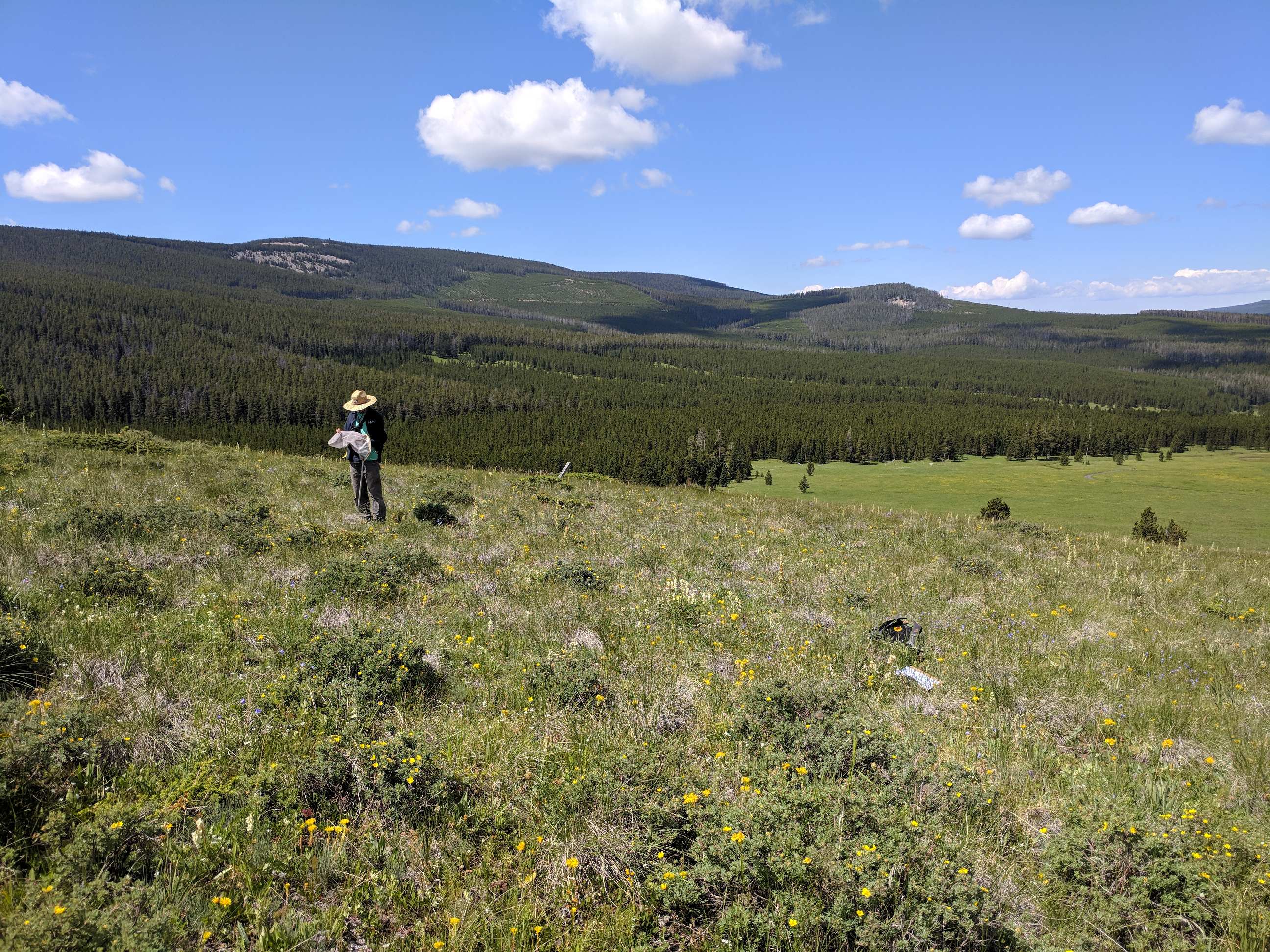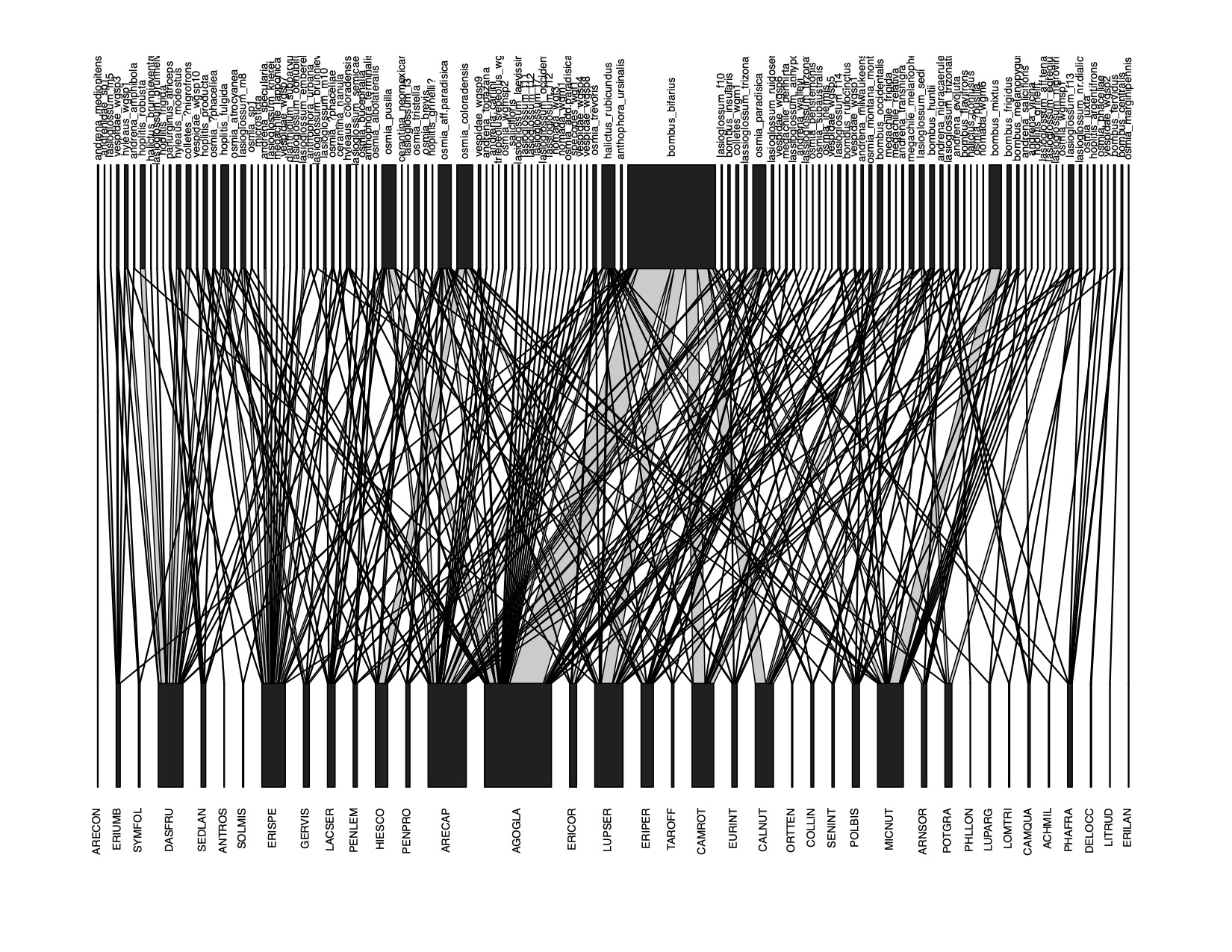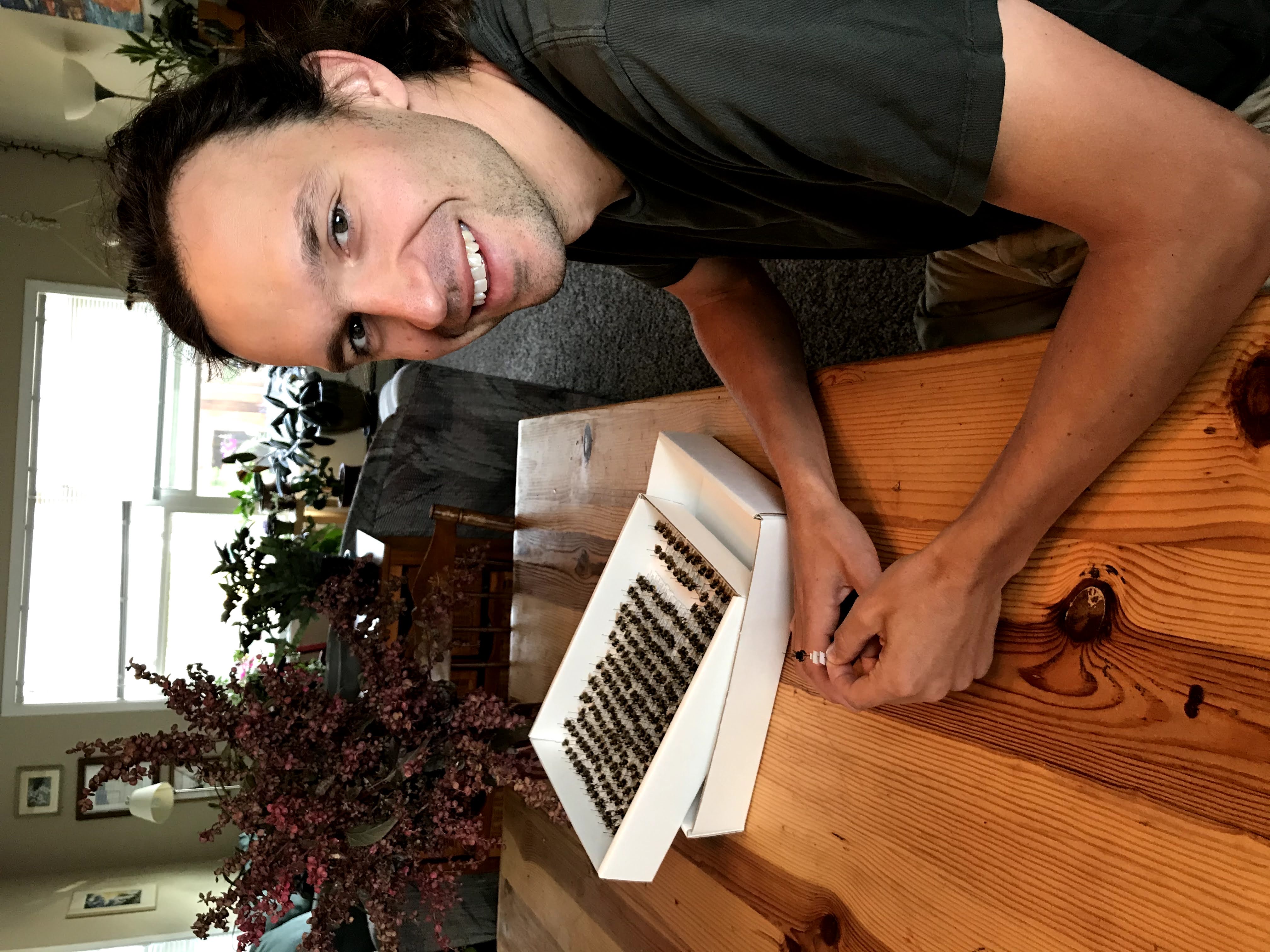Investigating Pollinator Networks In Europe

Insect pollinators are critical for the maintenance of biodiversity and functioning ecosystems, and pollinator declines globally require restoration strategies to reconnect plant-pollinator mutualisms. Seed mixes that are rich in flowering plant species are important to restore vegetation communities and provide the nectar and pollen resources required by insect pollinators. However, it remains unclear how reseeding landscapes influence the composition of pollinator communities and ultimately plant-pollinator interaction networks.

Collaborating with the Global Restore Project, iDiv researchers are identifying locations across Europe that restored landscapes using seed mixes and traditional management practices, to understand how different restoration methods influence pollinator communities. Pollinator collections will begin at locations in the summer of 2024. We hypothesize that reseeded communities will result in more simplified networks compared to sites restored with traditional management, because seed mixes only revegetate areas with a subset of all available plant species and primarily benefit abundant and generalist bee species. We are always looking to enroll more locations within our study and would be happy to start a dialogue if this project interests you. As a part of this effort, we will plan an exciting pollinator summer school at iDiv for 2024.

This study is led by Dr. Will Glenny (Alexander von Humboldt post-doctoral fellow) who is a part of the Spatial Interaction Ecology group led by Prof. Dr. Tiffany Knight at the German Centre for Integrative Biodiversity Research (iDiv) in Leipzig, Germany. Will completed his PhD at Montana State University in Bozeman, Montana, USA, where his research helped improve the selection of plant species for pollinator habitat restoration in large, semi-natural ecosystems.